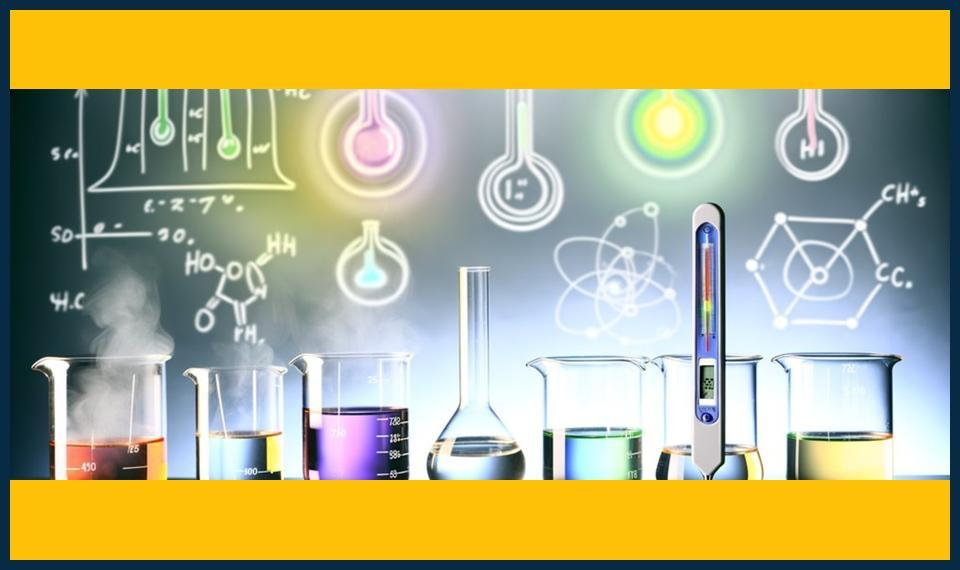![]()
🔬 Top 5 GCSE Chemistry Experiments Every Student Should Know About 🧪
Hello there, future scientists! 👩🔬👨🔬 Whether you’re a student, parent, tutor, or teacher, understanding key chemistry experiments can boost your GCSE success. Let’s dive into the world of science with Tutor GP and explore the top 5 GCSE Chemistry experiments that will captivate your curiosity and reinforce your understanding.
1. Making Soda Volcanoes 🍼🗺️
Who doesn’t love a good soda volcano? This bubbly experiment is the perfect introduction to chemical reactions. By combining baking soda and vinegar, you’ll witness the production of carbon dioxide gas, causing the eruption. Remember to mix carefully and observe the reaction!
2. Separating Salt and Sugar from Seawater 🌊🔬
This experiment demonstrates the process of osmosis and shows how substances can move across a semi-permeable membrane. Through a simple process, students can separate salt and sugar from seawater, understanding the importance of osmotic pressure in the real world.
3. Electrolysis of Water 💧⚡️
Ever wondered how electricity can split water into hydrogen and oxygen? This experiment is the answer! By passing an electric current through water, students will observe the production of hydrogen and oxygen gases. This is a fantastic demonstration of electrolysis and its practical applications.
4. Making Silk Thread 🧵sung
This unique experiment shows the process of protein synthesis, the basis for understanding many biological and chemical reactions. By creating silk thread from protein solutions, students will understand the structure of proteins and their crucial role in various processes.
5. Acids and Bases: pH Indicators 🐠🔵
Understanding acid-base reactions is essential for GCSE Chemistry. By using indicators such as litmus paper or red cabbage juice, students can determine the pH level of various substances and learn about the importance of acid-base balance in our bodies.
Make Learning Fun and Memorable 🎈🎉
Incorporating hands-on experiments into your learning journey can make chemistry come alive. By getting involved in the processes and seeing the reactions for yourself, you’ll retain information more effectively. Remember, the best learning is often the most enjoyable!
Parents: Encourage and Support 👪💼
As a parent, your support is crucial in nurturing your child’s passion for learning. Encourage them to try out these experiments at home, offering guidance when needed. If you’re unsure, consider seeking help from a tutor who can provide personalised learning strategies and boost your child’s confidence in the subject.
Tutors and Teachers: Inspire and Educate 🏫👩🏫
Whether you’re a tutor or a teacher, these experiments can be valuable tools in your arsenal. By incorporating them into your lessons, you’ll engage students, reinforce understanding, and inspire a love for chemistry.
FAQs ❓
🔬 Question: How can I make sure I’m prepared for GCSE Chemistry?
Answer: Developing good study habits, understanding key concepts, and practicing problem-solving skills are all essential for success. Consider seeking help from a tutor if you need additional support.
🍼 Question: Are these experiments safe for students to do at home?
Answer: While safety precautions should always be taken, most of these experiments are safe for students to conduct with adult supervision. Always follow instructions carefully and use appropriate safety equipment.
💧 Question: Can I adapt these experiments for online learning?
Answer: Absolutely! Virtual demonstrations, pre-recorded experiments, and online simulations can help students engage with the material even if they’re learning remotely.
🐠 Question: How can I make chemistry more interesting for my child?
Answer: Encourage curiosity, provide real-life examples, and make learning interactive. Experiments, like the ones mentioned above, can help make chemistry come alive for your child.
🧵 Question: Are there any online resources for finding more GCSE Chemistry experiments?
Answer: Yes! Websites such as the Royal Society of Chemistry and BBC Bitesize offer a wealth of resources for GCSE Chemistry experiments.
🔬 Question: Can these experiments be modified for A-Level Chemistry?
Answer: While some experiments may be more complex, many can be modified or built upon for A-Level Chemistry. Always ensure you have the appropriate resources and understanding to adapt experiments safely and effectively.
💧 Question: How important is it to understand chemistry for future studies?
Answer: Chemistry is a fundamental science that underpins many fields, including medicine, engineering, and environmental science. A strong foundation in chemistry can open doors to a wide range of careers.




